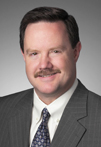© 2014 The Texas Lawbook.
By Mark Curriden – (July 14) – Squire Patton Boggs doesn’t roll off the tongue quite yet, but these things take time. Just ask the folks at Norton Rose Fulbright.
Patton Boggs and Squire Sanders merged June 1, which meant combining their Texas operations, too. Patton Boggs has 35 lawyers in Dallas. Squire Sanders has eight lawyers based in Houston. The new firm has more than 1,600 lawyers in 44 offices around the globe.
Texas leaders of the newly merged international law firm say they have been “amazed” at how well the two operations are already working together internally. They claim the combination of the firms gives its Texas clients more depth in the services its lawyers can provide and will make it more attractive to oil and gas companies needing expertise well beyond the Texas borders.
“One of the biggest challenges of a merger this size is getting to know our new colleagues and what they do,” says Michael Forshey, a commercial litigator who has been named the managing partner of Squire Patton Boggs’ Dallas office.

Forshey says that the technical aspects of the “merger have gone very smoothly,” and he attributes the speed and success of combining the firms to Squire’s rapid growth in recent years through the acquisition of other law firms.
“We’ve had a couple big integrations and we’ve gotten pretty good at merging the back office shops,” says Steven Harris, an energy litigator who is the managing partner of the Houston office. “The focus is now on the front office.
“There are a lot of opportunities sitting on the table that we are studying and there are opportunities hiding in plain sight,” says Harris.
Forshey says that “getting together allows us to identify” potential strengths and business development possibilities.
Until just a month ago, Forshey, a 1981 graduate of the University of Houston Law Center, and Harris, a 1980 graduate of the SMU Dedman School of Law, had never met. The pair nearly became partners 26 years ago when their two Houston litigation boutiques combined to become Butler & Binion, but Harris left the law firm a few months before the merger.
Harris says Squire Patton Boggs plans to use its Texas offices to focus on the energy sector and clients with operations in Latin America. Forshey says he and other partners in Dallas plan to promote Squire’s widely recognized national labor and employment practice to their Texas clients.

The Houston office focuses more on energy and construction litigation, but also has a significant labor and employment practice.
The Dallas office has a strong financial institutions practice and represents private equity firms and energy companies in complex financial structures. The firm, led by Dallas partner Larry Makel, developed a highly successful mezzanine finance practice.
The Dallas office also features a handful of prominent litigators, including Forshey, Cass Weiland and James Jacks, who spent more than three decades as a prosecutor with the U.S. Justice Department.
Patton Boggs has been known for its highly touted and very successful public policy group, which is led by former U.S. Senators Trent Lott and John Breaux. Some political insiders claim the firm has the best and most effective lobbyists on K Street.
In fact, the Patton Boggs public policy team represented several major energy companies on various national legislative and regulatory matters.
Legal industry analysts also note that the DC-based firm came into the merger on the heels of a couple of high profile controversies with Texas connections (its representation of Ecuadorian farmers and tribe members in an environmental lawsuit against Chevron and its defense of disgraced cyclist Lance Armstrong).
But those same industry insiders say Squire Patton Boggs’ biggest challenge for success and growth in Texas is competition from an ever-increasing number of national firms opening shop in Dallas and Houston.
“I see a lot more opportunities for us than hurdles,” says Forshey. “We want to grow and we will grow, but the growth has to be natural. If you force growth, it destroys culture.
“Even in Texas,” Forshey continues, “bigger is not always better.”
Harris agrees.
“There’s a lot of movement right now in the Houston market,” he says. “The key is to make smart decisions in an over-heated Houston market.”
© 2014 The Texas Lawbook. Content of The Texas Lawbook is controlled and protected by specific licensing agreements with our subscribers and under federal copyright laws. Any distribution of this content without the consent of The Texas Lawbook is prohibited.
If you see any inaccuracy in any article in The Texas Lawbook, please contact us. Our goal is content that is 100% true and accurate. Thank you.
